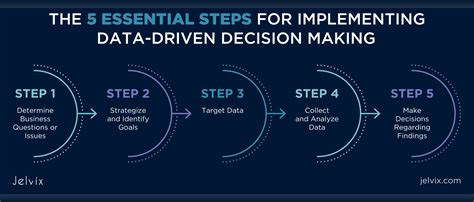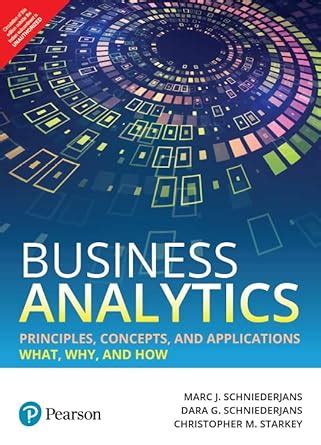Business analytics is a vital tool for organizations seeking to gain insights and make data-driven decisions in today's fast-paced and competitive business landscape. It involves using statistical and analytical techniques to examine data and drive business strategy. In this article, we will delve into the principles, concepts, and applications of business analytics, highlighting its significance and benefits for businesses.
Understanding Business Analytics
Business analytics is a multidisciplinary field that draws from statistics, computer science, and business to analyze data and provide insights that inform business decisions. It encompasses a range of techniques, including data mining, predictive analytics, and statistical modeling, to extract insights from data. Business analytics is not just about analyzing data; it is about using data to drive business outcomes.

Key Principles of Business Analytics
There are several key principles that underpin business analytics. These include:
- Data quality: High-quality data is essential for accurate and reliable analytics.
- Data integration: Integrating data from different sources is critical for gaining a comprehensive view of the business.
- Analytical techniques: A range of analytical techniques, including statistical modeling and data mining, are used to analyze data and extract insights.
- Insight generation: Analytics is not just about analyzing data; it is about generating insights that inform business decisions.
Concepts in Business Analytics
There are several key concepts in business analytics, including:
Descriptive Analytics
Descriptive analytics involves analyzing historical data to understand what has happened in the business. It provides insights into past performance and helps businesses identify trends and patterns.
Predictive Analytics
Predictive analytics involves using statistical models and machine learning algorithms to forecast future outcomes. It helps businesses anticipate what may happen in the future and make informed decisions.
Prescriptive Analytics
Prescriptive analytics involves using analytics to recommend specific actions that businesses can take to achieve a desired outcome. It provides businesses with a clear roadmap for action.

Applications of Business Analytics
Business analytics has a wide range of applications across different industries and functions. Some of the key applications include:
- Marketing analytics: Using analytics to understand customer behavior and preferences, and to optimize marketing campaigns.
- Operations analytics: Using analytics to optimize business processes and improve operational efficiency.
- Financial analytics: Using analytics to analyze financial data and make informed investment decisions.
Tools and Technologies for Business Analytics
There are several tools and technologies that are used in business analytics, including:
Data visualization tools
Data visualization tools, such as Tableau and Power BI, are used to create interactive and dynamic dashboards that provide insights into business data.
Statistical software
Statistical software, such as R and SAS, are used to analyze data and build statistical models.
Machine learning algorithms
Machine learning algorithms, such as decision trees and neural networks, are used to build predictive models and classify data.

Benefits of Business Analytics
Business analytics provides several benefits to organizations, including:
- Improved decision-making: Analytics provides businesses with insights that inform decision-making and drive business outcomes.
- Increased efficiency: Analytics helps businesses optimize processes and improve operational efficiency.
- Enhanced customer experience: Analytics helps businesses understand customer behavior and preferences, and to create personalized experiences.
Challenges and Limitations of Business Analytics
While business analytics provides several benefits, there are also several challenges and limitations, including:
Data quality issues
Poor data quality can lead to inaccurate insights and flawed decision-making.
Limited analytical skills
Many organizations lack the analytical skills and expertise needed to analyze data and extract insights.
Cultural barriers
Analytics requires a cultural shift, with businesses needing to become more data-driven and analytical in their decision-making.

Best Practices for Implementing Business Analytics
To implement business analytics effectively, organizations should follow several best practices, including:
- Develop a clear strategy: Define a clear analytics strategy that aligns with business objectives.
- Invest in analytical talent: Invest in analytical talent and expertise to analyze data and extract insights.
- Focus on data quality: Prioritize data quality and ensure that data is accurate and reliable.
Gallery of Business Analytics






FAQs
What is business analytics?
+Business analytics is a multidisciplinary field that draws from statistics, computer science, and business to analyze data and drive business strategy.
What are the benefits of business analytics?
+The benefits of business analytics include improved decision-making, increased efficiency, and enhanced customer experience.
What are the challenges of implementing business analytics?
+The challenges of implementing business analytics include data quality issues, limited analytical skills, and cultural barriers.
We hope this article has provided a comprehensive overview of business analytics, its principles, concepts, and applications. By implementing business analytics effectively, organizations can gain a competitive edge and achieve their goals. Share your thoughts on the role of business analytics in today's business landscape in the comments below.
